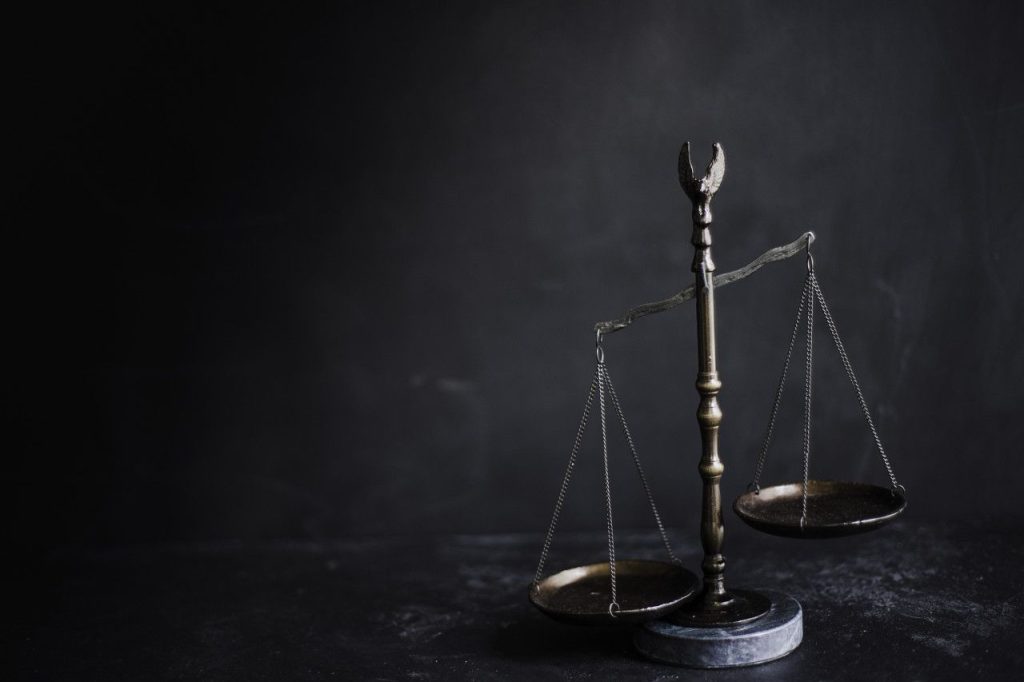Case-1- Mfar Hotels & Resorts (P.) Ltd.-[2020] 120 taxmann.com 442-AAR – TAMILNADU
Question1-What is the rate of tax applicable on the supply of Soft Beverages (Aerated Water) and Tobacco (Smokes) when these items are supplied independently and not as composite supply in the restaurant? In other words what is the rate of GST if these items alone are supplied and not along with food as Composite supply to the guest?
Part-1-Soft Beverages- The applicant runs a hotel offering various services such as accommodation, dining, etc. In the situation at hand, the question involves the supply of Soft beverages/aerated water as a separate supply by the restaurant to a casual guest who do not avail of any other services offered by the applicant other than buying Soft beverages/aerated water at the restaurant. The applicant in the menu for restaurant has ‘aerated water’ and ‘soft Beverages’ i.e., any guest who comes to the restaurant can have aerated/ soft beverages alone also as these are in the menu of the restaurant. When a guest (resident or nonresident) comes to the restaurant and orders from the menu either soft beverages or aerated water, it involves supply of goods (soft beverages/aerated waters) and supply of services by the restaurant. In this case both the supplies are taxable. The serving of any items on the menu involves the supply of the items along with the use of the facilities/ staff of the restaurant. These two are naturally bundled and supplied in conjunction each other and hence is a composite supply as per Section 2(30) of the Act. Supply of soft beverage/ aerated waters by the restaurant whether to resident or nonresident guests, whether in person or room services, is a composite supply of service classifiable under SAC 996331.
In the instant case, the hotel being a 5 star hotel has a declared tariff of above seven thousand and the restaurant in question has license to serve alcohol (relevant for the notification before amendment. From the above notification and amendments, it is seen that supply of soft beverages/aerated water, whether in person or room service, by the restaurant located in the premises of the hotel is taxable to CGST at the rate of 9% as per sl.No. 7 of Notification No. 11/2017-C.T. (Rate) dated 28.06.2017 and SGST @ 9% as per Notification No. as per SI.No. 7 of Notification No. II (2)/ CTR/ 532(d-14)/2017 vide G.O. (Ms) No. 72 dated 29.06.2017 as amended.
Part-2-Tobacco-The applicant also supplies of cigarettes as a separate supply in the restaurant to a casual guest who do not avail of any other services offered by the applicant other than buying cigarettes at the restaurant. The applicant in the menu for restaurant has various cigarette products i.e., any guest who comes to the restaurant can have cigarettes alone also as these are in the menu of the restaurant. When a guest (resident or nonresident) comes to the restaurant and orders from the menu tobacco products, it involves supply of goods (cigarettes) and supply of services by the restaurant. In this case both the supplies are taxable. The serving of any items by a restaurant involves the supply of the items along with the use of the facilities/ staff of the restaurant. However, in this case the sale of cigarettes products are not naturally bundled together with the restaurant services as the services of the restaurant involves serving of food and beverages alone in the normal course. Hence is not a composite supply as per Section 2(30) of the Act. However, when such cigarettes products are supplied by the restaurant, a single price is charged as seen in the invoices submitted by the applicant.
In the instant case, supply of tobacco products by the restaurant is not a composite supply but involves supply of two individual supplies of goods (tobacco products) and supply of services of serving by the restaurant. Such a supply is a mixed supply.
6.5.2 As per Section 8(b) of the Act, the tax liability on a mixed supply comprising two or more supplies shall be treated as a supply of that particular supply which attracts the highest rate of tax. In the instant case, the applicable rate of tax for cigarettes classifiable as CTH 2402 is 14% CGST and 14% SGST as per Sl.no 14 of Schedule IV of Notification No. 1/2017-C.T. (Rate) dated 28.06.2017 and Notification No. II (2)/CTR/532(d-4)/2017 vide G.O. (Ms) No. 62 dated 29.06.2017 as amended. Apart from this GST Compensation Cess is applicable at specified rates for different kinds of cigarette product as per Notification No.1/2017-Compensation Cess (Rate) DT 28.6.2017 as amended. Hence, in the case of the mixed supply of cigarettes by the restaurant, in person or room service, the applicable rate is the rate applicable to supply of cigarettes which 14% CGST and 14% SGST as per Sl.no 14 of Schedule IV of Notification No. 1/2017-C.T. (Rate) dated 28.06.2017 and Notification No. II(2)/CTR/532(d-4)/2017 vide G.O. (Ms) No. 62 dated 29.06.2017 as amended and the applicable GST Compensation Cess is applicable at specified rates for different kinds of cigarette product as per Notification No.1/2017-Compensation Cess (Rate) dt 28.6.2017 as amended.
Question-2-Clarification on the taxability of alcoholic liquor for human consumption under GST when supplied in the restaurant.
As per Section 9(1) of CGST/TNGST Act, the supply of alcoholic liquor for human consumption, is a non-taxable supply. Hence, supply of alcoholic liquor for human consumption by a restaurant will not be taxable under CGST/TNGST Act.
Question-3-It is obligatory on the part of employer to supply free food to the employees. Whether such free supply of food is liable to reverse ITC on inputs as per Rule 42 of CGST Rules 2017?
It is stated that in respect of employees, there is a separate canteen Café 0154 and supply of free food to employees is as per the contract with the employees. The applicant has furnished a copy of appointment letter issued to Ms. Namitha T Ajai dated 21st January 2019. On perusal, it is seen that as per S1.No. 17 of the Annexure-II to the said letter, it is stated that
`Duty Meals will be provided in Café 0154-Associate Dining Room….”
From the said document, it is evident that as part of Terms 86 Conditions to the appointment, the applicant extends food to their employees for which no separate consideration is charged from the employees.
In the case at hand, the applicant provides food through a separate canteen to their employees, who are related persons as a part of the employment contract, i.e., in the course or furtherance of business. Therefore, as per Para 2 to Schedule I of the CGST/TNGST Act, supply of free food to the employees is a supply of service under the Act. Supply of food in a specified place, such as canteen as in the present case is a supply of service with SAC 996333 as given in the Annexure to Notification No. 11/2017-C.T. (Rate) dated 28.06.2017 which provides the Scheme of Classification of services.
Therefore, supply of food in the specified canteen by the applicant to their employees without consideration is ‘supply’ under GST and taxable on the value of such supply as determined by Rule 28 of CGST Rules, 2017. The rate applicable is CGST @ of 9% as per sl.No. 7 of Notification No. 11/2017-C.T. (Rate) dated 28.06.2017 and SGST @ 9% as per Notification No. as per Sl.No. 7 of Notification No. II (2)/ CTR/ 532(d-14)/2017 vide G.O. (Ms) No. 72 dated 29.06.2017 as amended.
Case-2- Taghar Vasudeva Ambrish-[2020] 120 taxmann.com 104-AAAR-KARNATAKA
Question-1-Whether exemption prescribed under entry number 13 of notification no. 9/2017- integrated tax (rate) dated. 28th June, 2017 can be sought and the lessors (here Ambrish Vasudeva and 4 others) need not charge GST while issuing the invoice for the lease service to m/s. Dtwelve Spaces Pvt. ltd.
Question-2-Whether the lease service falls under the Exemption prescribed and can be described as “Services by way of renting of residential swelling for use as residence”? as listed in the aforesaid Notification.
12. In the instant case, the Lease Deed dated 21st June 2019 evidences that a property has been rented/leased to M/s DTwelve Spaces Pvt Lt by the Lessors (the Appellant being one of the lessors) who are also the owners of the said property. The Appellant claims that the property which has been leased to the lessee is a residential property and has put forth evidences in the nature of sanctioned building plan and Katha extract to substantiate the same. They have also relied on several judicial pronouncements to emphasise that a “residential dwelling” is a place where people live or stay for a considerable period of time. We take note of the fact that the notification no. 9/2017-integrated tax (rate) dated. 28th June, 2017 as well as the GST law does not define the term “residential dwelling”. However, we refer to the CBIC Education Guide dated 20 June 2012 which gives clarifications in the context of Service Tax laws wherein it is mentioned that in the absence of a definition of the term “residential dwelling”, one has to interpret the same in terms of normal trade parlances as per which it is any residential accommodation, but does not include hotel, motel, inn, guest house, camp-site, lodge, house boat or like places meant for temporary stay. In the case before us, we find from the records submitted by the Appellant that, the impugned property was constructed as Hostel building. The project description in the sanctioned plan submitted to us indicates that the plan is for the construction of a hostel building.Can a hostel building be called as a residential dwelling? A common understanding of a hostel is that of an establishment which provides inexpensive accommodation to specific categories of persons such as students, workers, travellers. On the other hand, a common understanding of the term “residential dwelling” is one where people reside treating it as a home. We find that the Appellant has constructed the building with the intention of providing hostel accommodation which is more akin to sociable accommodation rather than what is commonly understood as residential accommodation. Therefore, we conclude that the impugned property cannot be termed as “residential dwelling”. Once the impugned property is not a residential dwelling, the exemption under Sl.No 13 of notification no. 9/2017-integrated tax (rate) dated. 28th June, 2017 will not apply to the renting/leasing of such property.
13. The Appellant has argued at great length that the lessee has taken the impugned property on lease for purpose of running a paying guest accommodation for students. They have submitted documents to evidence that the students reside in the accommodation for durations between 3 months and 12 months. They argued that since there is a certain degree of permanency in the students stay at the property, it can be said that the property is used for purposes of residence. The exemption given vide entry Sl.No 13 of Notf No notification no. 9/2017-integrated tax (rate) dated. 28th June, 2017 is to residential dwellings which are rented out for use as residence. Assuming but not admitting that the impugned property is a “residential dwelling”, the same has to be used as a residence by the lessee. In this case we find that the lessee (M/s DTwelve Spaces Pvt Ltd) is using the impugned property for conducting his business of running a paying guest accommodation. The exemption is available only if the residential dwelling is used as a residence by the person who has taken the same on rent/lease.The term “for use as residence” as appearing in Sl.No 13 of notification no. 9/2017-integrated tax (rate) dated. 28th June, 2017 implies that the recipient of service should use the dwelling as residence. In other words, the service of renting of residential dwelling to a recipient who uses the same as residence, is exempted from GST. In the instant case, we find that the lessee M/s DTwelve Spaces Pvt Ltd, who is the recipient of the service of renting provided by the Appellant, is not using the leased property for use as residence but is using the same for operating his business of providing paying guest accommodation to students. On this ground too we find that the Appellant is not eligible for the benefit of exemption as per Sl.No 13 of notification no. 9/2017-integrated tax (rate) dated. 28th June, 2017
Case-3- Acharya Shree Mahashraman Chaturmas Pravas Vyavastha Samiti Trust-[2020] 120 taxmann.com 342 –AAAR Karnataka
Subject-Classification of Supply of Renting of 2BHK unit and Dormitory Units
The Appellant had erected temporary accommodations at Kumbalagodu Village, Mysore Road, KengeriHobli, Bangalore North Taluk where the religious event was conducted. We find that the Appellant is not renting out ‘rooms’ but rather is renting out units of accommodation comprising of 2 bedrooms, hall, kitchen, restroom, toilet. The entire unit with facilities like water, electricity, cot, bed, pillow, bedspread and air-conditioner is given out on rent. The devotee is also given cooking facility in this unit. Therefore, a unit of accommodation of this kind which is termed by the Appellant as a 2BHK Category I type of accommodation cannot be considered as renting of rooms and will not be covered in the entry Sl.No 13 of Notification No 12/2017 CT (R) dated 28-06-2017.
Similarly, the renting out of beds in a dormitory is also not akin to renting of rooms and hence it will not qualify for exemption under clause 13(b) of the said Notification. We agree with the ruling of the lower Authority and hold that the renting of the 2 BHK unit and the dormitory will be chargeable to GST as a single unit where the value of supply will be the charges for the full 2BHK unit / dormitory and not the charges for each room / bed and is liable to tax.in terms of entry Sl.No 7 of Notification No 11/2017 CT(R) dated 28-06-2017 as amended by Notification No 20/2019 CT (R) dated 30-09-2019.
Case-4- Navneeth kumar Talla-[2020] 120 taxmann.com 453-AAR- TELANGANA
Q1. Whether the food supplied to hospital i.e. Government Hospitals, Private Hospitals and Autonomous Bodies on outsourcing basis the GST is chargeable? If GST is chargeable what is the tax rate?
Ans-Yes
Q2. If no GST is chargeable on the supply of food the GST already paid by the Hospitals and remitted to Government is recoverable from my future Bills.
For the period from 1-7-2017 to 26-07-2018 – 18% (CGST 9% + SGST 9%) and for period from 27-7-2018 onwards – 5% (CGST 2.5% + SGST 5%). Provided that credit of input tax charged on goods and services used in supplying the service has not been taken.



